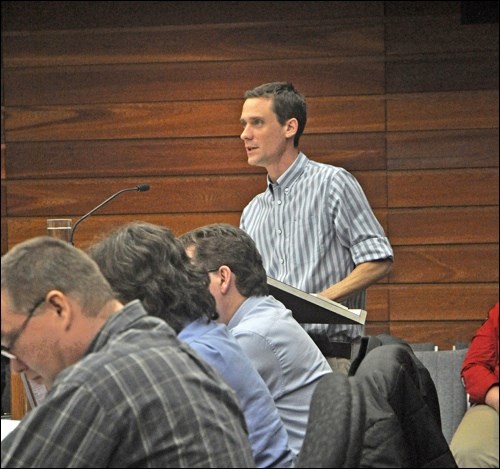The City of North Battleford has settled on what to do about the critical issue of lead pipe replacement in the city.
Council decided the replacement of private lead service connection pipes will not be mandatory when the City is undertaking water mains replacement projects.
The main reason is because the cost to property owners would simply be too onerous. City Manager Jim Puffalt has recommended in a memo to council that the City continue to encourage property owners to replace the lead lines, to increase public awareness, to require those property owners who choose to not replace the line sign a waiver of liability or, if they refuse to sign a waiver, a notice from the City would be provided to the property waiving liability.
The lead pipe situation was discussed by council during Monday’s meeting. It was a topic of importance due to the adverse health impacts that lead in the water can cause.
According to Bob Anthony, city engineer, 370 properties in the City are known to have lead service pipes. Of those, 37 of them are affected this year by the UPAR water main replacement projects that are planned.
Under UPAR, streets that have extensive lead pipes are a priority, said Anthony. Currently and for the past few years “whenever we’ve come across lead lines on UPAR projects, the City has replaced regardless of the property owner’s wants, to replace up to the front property line.” This is known as a partial replacement.
The problem is that when this work is done, it increases the concentration of lead in the water. The cut in the existing lead pipe introduces a fresh surface that’s exposed to the water in the pipe, in some cases tripling the amount of lead.
In the end, council did not go forward with a mandatory replacement regime, but are encouraging replacing the lines.
Puffalt explained that forced replacement was simply too harsh for people. He described it as “somewhat draconian to come to somebody’s house some day” and charge upwards of $10,000 for the replacement.
“We think it should be up to the property owners to choose,” said Puffalt. If homeowners can'tt afford it, there are ways to mitigate it by running the line, drinking bottled water, by filtering and a number of different measures.
Councillors also pushed for as much information and public notice to go out to homeowners as possible, as well as to renters of buildings to make sure tenants are informed beforehand.




